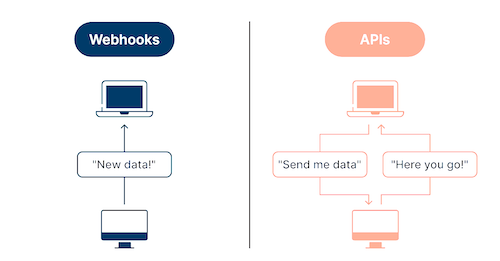API or Webhooks?
Figure out if you need API access or to configure a webhook!

How APIs work
API (Application Programming Interface) allows two or more systems to exchange data—like a chat, where one system asks for something and the other responds.
This is the most common way of integrating systems.
Generally, if you have a system already that receives data, for example a reservation on a PMS system, and you want to then create a reservation in the Livvi system, you will use our API to do that.
APIs allow you to push information from other systems into Livvi. They also allow other systems to pull information from Livvi, such as a reservation's PIN code, for example.
Want to read our API documentation? Use the “API Documentation” link in the top bar. We also have some guides focused on managing access using our API:
Managing AccessDiscover the best access management feature for your use case.
How Webhooks work
Webhooks enable your applications to receive real-time “push notifications” when specific events occur—like when a new booking is created or a guest checks in using their PIN code.
If the data is originating in the Livvi system, for example your team members insert reservations in the Livvi Dashboard or the guest uses their PIN code for the first time and check in, you can receive that data instantly on other systems by enabling a webhook.
If you want to push information from Livvi into another system automatically, you want webhooks.
WebhooksFind out how to configure and use webhooks in Livvi